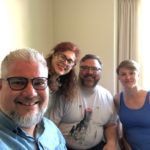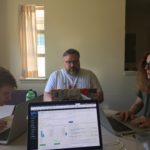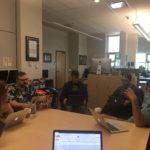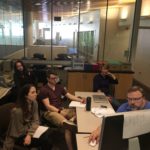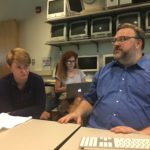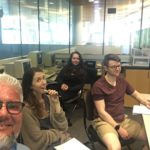Welcome to Coping With Bits!
This is a space for the team to document its work on a project titled “A Comprehensive Online Portal for Electronic Literature Works.” The Andrew W. Mellon recently awarded funds for the first stage of the project. Here’s the official press release for the grant, cited below:
The Andrew W. Mellon Foundation has awarded $42,000 to migrate the Electronic Literature Organization’s (ELO) archives to an open-source repository system that ensures their preservation and public accessibility. Much of the archiving and documentation will take place at WSU Vancouver’s Electronic Literature Lab, under the leadership of Professor Dene Grigar, director of the lab.
WSU Vancouver is the current sponsoring institution for the ELO, and Grigar is its president. The university also is a partner in the project, titled “A Comprehensive Online Portal for Electronic Literature Works.” Other partners are the ELO, the Electronic Textual Cultures Lab at the University of Victoria (Canada) and Compute Canada.
Nicholas Schiller, WSU Vancouver librarian and associate director of the Electronic Literature Lab, will also participate as Co-PI. In addition, the project involves scholars from two other institutions who also serve as Co-PIs: Leonardo Flores, professor at the University of Puerto Rico Mayagüez, and Abby Adams, digital archivist at the Harry Ransom Center at the University of Texas at Austin. Student research assistants at WSU Vancouver will also help.
The ELO’s digital archives consist of seven collections of original digital literature––typically referred to as electronic literature, or e-lit. The project addresses the need for improved access, discovery and preservation for these works so that they will be available to scholars of the present and future.
We’re grateful for the support granted by WSUV, the ELO, and the Mellon Foundation for this important digital preservation project.
Sincerely,
Dene Grigar, Nicholas Schiller, Leonardo Flores, Abby Adams
